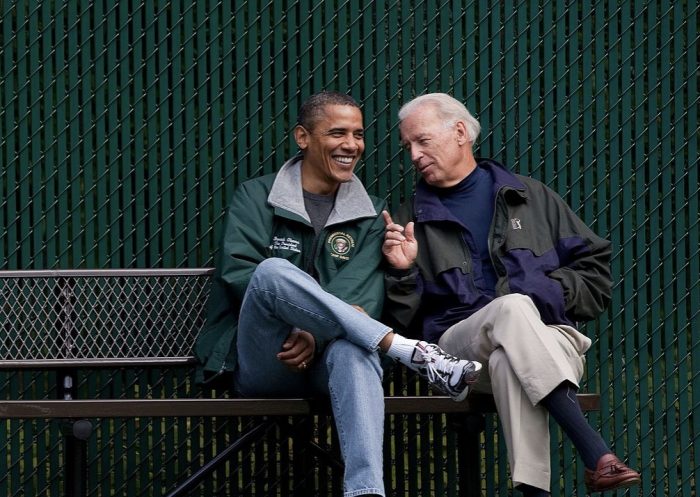Marriage in the United States is on the decline.
While it’s still commonplace, many Americans are finding themselves on the fringes.
Meanwhile, almost 40 percent of all marriages end in divorce. While marriage declines among younger Americans, divorce rates are rising for older ones. Are you one of the many who’s lamented the single life? Why not put more focus on meaningful friendships?
As an asexual, I admit I may be biased. Still, I strongly believe that American culture places too much emphasis on romance and sex and not enough on the value of friendships.
Romance, Friendship, and Love
Lately, I’ve sequestered myself from Facebook and have found isolation in a global pandemic. In that isolation, I’ve been pondering the question of friendship. It is something I perhaps failed to value enough before.
Recently, I began writing a book I plan to entitle Brothers’ Til we Die that will be released on a date to be announced. The book is an urban drama following the unlikely friendship of two individuals from opposite sides of the track. In some ways, it a story not of love but of brotherly love.
I must confess as a writer, I sometimes get emotionally involved in my work.
While I don’t say this with pride, I have sometimes even been known to cry literal tears while writing a scene. For me, writing a story can be an emotional experience. This holds true even though I know the characters aren’t real. This book has proven no exception.
While writing and from my own experience, I have realized that the ups and downs of close friendships are quite real.
These close and often tumultuous friendships are just as intense, emotional, and meaningful as what one might experience in a marriage or romantic encounter. The only things that seem to be missing from friendship are sexual intimacy, an intention to pursue legal contracts, and for some, maybe kids.
Despite this, popular media, business, and society seem to put all the emphasis only on one kind of relationship. Even in the movies and books and the great love stories of old, it would seem that romance has somehow claimed a monopoly on love.
So why do we—especially in America—put such a high emphasis on romantic and sexual relationships? Why does friendship get sidelined?
The State of Friendship in America
According to research by Barna, the state of friendship in the U.S. appears to be bleak. The average American adult may have two to five confidants, but most only have two, down from three a few decades ago. Meanwhile, at least one quarter of Americans report having no one at all. Further, one in five Americans says they experience loneliness.
Most American adults make their friends through their work but, more and more, Americans are working from home.
Those who don’t get their friends from work tend to connect with those who have mutual friends. While some make friends in the neighborhood, these numbers seem to be low and dependent on celebrations and community events. Americans who interact with their neighbors are friendly, but it rarely goes beyond a simple hello or other brief greetings. Only one in four Americans say they’ve made friends with one or two of their neighbors.
More adults seem to be finding it more difficult to make friends and connect with real people. While some blame technology, there are likely many factors at play. For instance, 86 percent of teens meet their friends through school in their classes. This is substantially higher than any other category, including extracurricular activities, sports teams, places of worship, or in the neighborhood.
Is it any wonder then that when school is over, making friends becomes much more of a challenge? As adults, the focus seems to become less on friends and more on marriage and the establishment of the nuclear family.
The Fairy Tale of the Fulfilling Marriage
Society places an immense amount of pressure on people on the issue of marriage.
They will stress, of course, the economic and legal advantages, but it seems to go deeper than that. There is a sense in our society that if you’re not married or at least in a committed relationship, then you’re not a whole person. You’re not a successful member of society. Even worse, you’ll experience crippling loneliness until the day that you die.
This sentiment couldn’t be better summed up than in the majority opinion of Obergefell versus Hodges by Justice Anthony Kennedy, who says:
“Marriage responds to the universal fear that a lonely person might call out only to find no one there. It offers the hope of companionship and understanding and assurance that while both still live, there will be someone to care for the other.”
In her article, “The Case Against Marriage,” Mandy Len Catron responds:
“The notion that marriage is the best answer to the deep human desire for connection and belonging is incredibly seductive.”
She also goes on to point out that marriage comes at a cost as other social ties suffer.
Married people are less likely to call or visit siblings or parents. They are also far less likely to offer them help with practical things like chores, transportation, or even emotional support. They are also less likely to lend a helping hand to neighbors and less likely to request help for themselves. They are also more likely to stay at home rather than spend time with neighbors or friends.
Some have tried to shift the blame to the demands of small children. As Catron points out, however, couples without children are shown to be even more isolated.
In other words, it would seem that marriage diminishes our social circles and undermines our support groups.
When Romance has Failed
While marriage remains on the decline, according to Pew Research, cohabitation is actually up.
Meanwhile, more people than ever are clamoring to sign up for sexual, romantic, monogamous relationships. Participation in marriage rose drastically among the LGBTQ+ community when the Supreme Court made it legal.
As some sociologists have pointed out, marriage has become a trophy, really just a symbolic gesture that showcases the success of a relationship. So is there really a difference between married and other cohabiting couples? The research doesn’t seem clear. Cohabitation is still on the rise, but cohabiting couples are often excluded from most of these studies.
An article in The Atlantic points out that some people have and are still upsetting this norm. Some have found happiness in the connection of friendships, which they’ve prioritized over their romantic and sexual partners. Some of them argue that the problem with these kinds of all or nothing relationships may be that people expect all their needs to be met by loading them all into one cart.
From our romantic partners, we expect everything.
We want them to share our hobbies, interests, and deepest beliefs. We also want them to satisfy sexual needs and our need for social connection. We want someone to make us happy and help us financially. We want them to give us meaning in life and a sense of identity. With all the expectations of romantic entanglements, it’s no wonder the famous Christian musician Rich Mullins never wanted to marry because he feared he would be responsible for someone else’s loneliness.
As psychotherapist Esther Perel explains, “When we channel all our intimate needs into one person, we actually stand to make the relationship more vulnerable.”
Why We Don’t Focus on Friendship, Especially Men
One consistent statistic has remained on marriage. Pew Research found that people get married for varying reasons, including economic support, social status, and companionship. The number one reason, however, is love. In the second place, we see a desire for making a commitment, and in the third, we see companionship.
What the trend seems to reveal then is that most people marry for love—preferably lifelong love that is secure and long-term.
But what if I told you this same sense of love could be enjoyed without sex or romantic entanglements? What if the reason it doesn’t for some is that society forces us to keep our friends at arm’s length?
While this is certainly true for all, it seems to be more true for men.
Dating apps remain dominant, but a few have also come out for friendship. Most are tailored to women. If two men have an emotionally intimate friendship that involves a lot of time and commitment, it’s often demeaned as a bromance, or it’s believed that they’re secretly gay.
Whenever a man says the three words to another, it always must be followed up by two.
“I love you. No homo”—then we wonder why we see toxic behavior.
In a sex-crazed society that has equated love with sexual contact, it’s no wonder our friendships have been tossed to the curb. It’s no wonder many of us are lonely and without a support group.
What if we as a country and we as a world went back to valuing friendship? What if society renewed its respect for brotherly (and sisterly) love?
~









Read 12 comments and reply